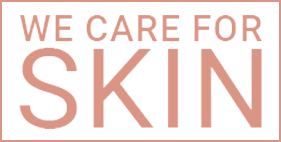Acne develops most during your teen years, but not everyone stops getting these bumps and redness here. Sometimes, you may be pestered by various degrees of acne even during adulthood due to stress, pollution, or hormonal imbalance. Could there be a way for safe and effective acne management?
Acne: How It Happens On The Face
First things first, how does acne develop? Acne primarily results from the inflammation of oil glands. As these are clogged with debris and bacteria, the irritated skin accumulates inflammatory cells. Even if these occur at a microscopic level only, the accumulation can be seen as redness, bumps of varying sizes, and even pus.
The entire skin contains numerous oil glands, but a huge amount is concentrated on the face. This explains why acne is more common in the face than in other parts of the body. And unfortunately, this is one of the most noticeable parts of the body.
Acne develops primarily due to excess oil production in the skin. Oil or sebum production can be exacerbated by hormonal changes, leading to clogged pores and irritated skin. Moreover, these can build up in the hair follicle and produce a stagnant mix of dead cells and bacteria in the area. When all the factors come together, you may develop all sorts of acne, including whiteheads, blackheads, cysts, and pimples.
People face different kinds of acne. There may be barely noticeable acne, while some manifest as large bumps and scattered redness on the face. Some may want an immediate cease of the skin condition, while some may be unbothered by it. Indeed, acne would not be life-threatening. However, untreated acne can lead to scarring or further amplification of the skin condition in the long run.
Acne Management Tips
People react differently to their acne. Some may be unbothered as their acne does not give them any esthetic problems. However, some people deal with numerous self-esteem issues and negative feelings associated with their acne.
You can follow numerous tips for alleviating acne problems. Acne management comes in all sorts of tips including over-the-counter treatment, knowing good skin habits, and regularly visiting a dermatologist.
Know more about these acne management tips here:
Acne Treatments
Anti-acne products remain the first thing that comes to mind when talking about acne management. It is true that many of these products do not require a prescription. But you need to be aware of certain products that need prescriptions as these will lead to more harm than good if taken inappropriately. Furthermore, acne treatment is not limited to what you see sold on drugstores. Orally taken medicine and clinical procedures can also help in acne management.
Here are common acne treatments that you can look into:
-
Azelaic acid and salicylic acid. If you look at the ingredients of products marketed for acne, azelaic acid and salicylic acid dominate the anti-acne products. These two contain antibacterial properties that help combat microorganisms causing acne. Furthermore, salicylic acid helps clear pores to reduce further acne formation.
-
Benzoyl peroxide. This ingredient is available in over-the-counter products. You can use benzoyl peroxide facewash or leave-on gels. The ingredient eradicates bacteria on the skin which helps calm down acne flare up. Since there are many concentrations of benzoyl peroxide in over-the-counter products, it is best to start with lower concentrations to minimize unwanted skin irritation.
-
Retinoids. Unlike the first, retinoids are prescription medications. These are given to individuals with moderate to severe acne who have trouble finding topical medications. Creams, gels, and lotions incorporate retinoids and retinoid-like drugs. However, note that topically applied retinoids can be inactivated by the sun. So protect your skin from sunlight whenever you apply this medication.
-
Antibiotics. As acne is an inflammatory condition caused by microorganisms, dermatologists can also prescribe antibiotics. Antibiotics kill bacteria on the skin, leading to reduced redness and inflammation. These can be topically applied and are usually used simultaneously with other agents for maximum acne management.
-
Steroid injections. Some acne appears large and painful. In these cases, a dermatologist can give steroid injections or cortisone shots to nodular and cystic acne. A small amount of the medicine will rapidly reduce the swelling and pain associated with the pimple.
-
Drainage and extraction. Acne with pus like cystic acne or nodule can be drained using sterile materials. The contents of the pimple are evacuated and this helps the skin obtain an environment conducive to healing.
-
Light therapy and chemical peels. You can also explore various therapies to manage acne. Light therapy and chemical peels can be done alone or combined with prescribed medications for maximum effect. Both light therapy and chemical peels require multiple appointments and would be best done by a professional.
Regular Visits To Your Dermatologist
Even if there are acne management options that you can utilize with over-the-counter products, you always have the option to visit a dermatologist. Dermatologists will look into your skin condition to arrive at an accurate diagnosis. From here, they will suggest the most effective acne management to improve the skin’s condition. Dermatologists know exactly what to do to help control your acne, avoid scarring, and prevent hyperpigmentation. As the skin is an essential organ of the body, the dermatologist also takes your overall health into account.
Aside from skin evaluation and prescription of medications, dermatologists also do cosmetic procedures. These are technical treatment that requires a professional to ensure the safety and effectiveness of the procedure. Some of these procedures include steroid injections, chemical peels, and laser treatment.
Build Healthy Skin Habits
Acne can be alleviated by building on healthy skin habits. Believe it or not, simple irritants from constantly rubbing your face with dirty hands or exposure to pollution increase the chances of irritation. Acne forms due to bacteria and dirt buildup under the pores. Hence, acne management also means that you incorporate the following habits:
Always keep your skin clean
Keep your skin clean by washing it twice a day with a gentle cleanser. You can also look for a face wash with benzoyl peroxide or salicylic acid. These ingredients help reduce inflammation and kill bacteria that cause acne.
Furthermore, keeping the skin clean also means thorough removal of makeup at the end of the day. Residue from makeup also clogs pores. Find an effective and gentle makeup remover to help prevent acne from makeup residue.
Moisturize and use sunscreen
When browsing into different products, you will notice that some are specified for use on the body or face. For example, heavier and thicker moisturizers for the body may clog pores if used on the face. So, look for face moisturizers to make the most out of its hydration without risking acne formation. You can look for noncomedogenic moisturizers, meaning, they are formulated to not cause breakouts.
Complete your skincare regimen with a sunscreen with at least SPF30 content. Sunscreen protects your skin from the penetration of harsh UV rays which could aggravate acne or cause delayed healing of acne spots.
Avoid too much exfoliation
When cleansing, avoid irritants like abrasives, washcloths, or sponges as these can cause too much tugging on the skin and irritate it. Avoid exfoliating brushes as well. Even if these are marketed to scrub away dirt and unclog pores, they may do more harm to the skin because of the unwanted tension of the scrubbing action.
Moreover, gently pat your skin to dry it after cleansing or taking a shower. The same concept applies – the less tugging and friction on the skin, the less likely it is to aggravate acne.
Stay away from direct sunlight
Direct sunlight on the skin can worsen acne. UV rays can increase acne inflammation and redness. Moreover, it can also lead to hyperpigmentation of acne lesions. So, try your best to stay away from direct sunlight and always apply sunscreen. Limit exposure to these harmful rays by using physical barriers like umbrellas, hats, or long sleeves.
Eat a healthy diet
The skin reflects your overall health. So, make sure to nourish your body with vitamins and minerals from fruits, vegetables, and whole grains.
Currently, studies have been conflicted regarding the way sugar, dairy, or chocolate trigger acne. Still, you can monitor your diet and your skin. Take note if your acne tends to flare up when eating these trigger foods.
Conclusion
Pimples can be healed and resolved with adequate care, use of correct products, and seeking professional consultation.
Always incorporate healthy skin habits to prevent further inflammation. You can also look into acne management products available in the market. Lastly, dermatologists are professionals who have your back when it comes to your anti-acne journey! Regularly visit them for consultation and monitoring of your skin condition.
References:
-
https://www.wecareforskin.net/articles/list-of-acne-treatment-dermatologists-in-the-philippines
-
https://www.wecareforskin.net/articles/how-can-acne-affect-mental-health-in-adolescents-and-adults
-
https://www.webmd.com/skin-problems-and-treatments/acne/10-tips-for-preventing-pimples
-
https://www.mayoclinic.org/diseases-conditions/acne/diagnosis-treatment/drc-20368048


